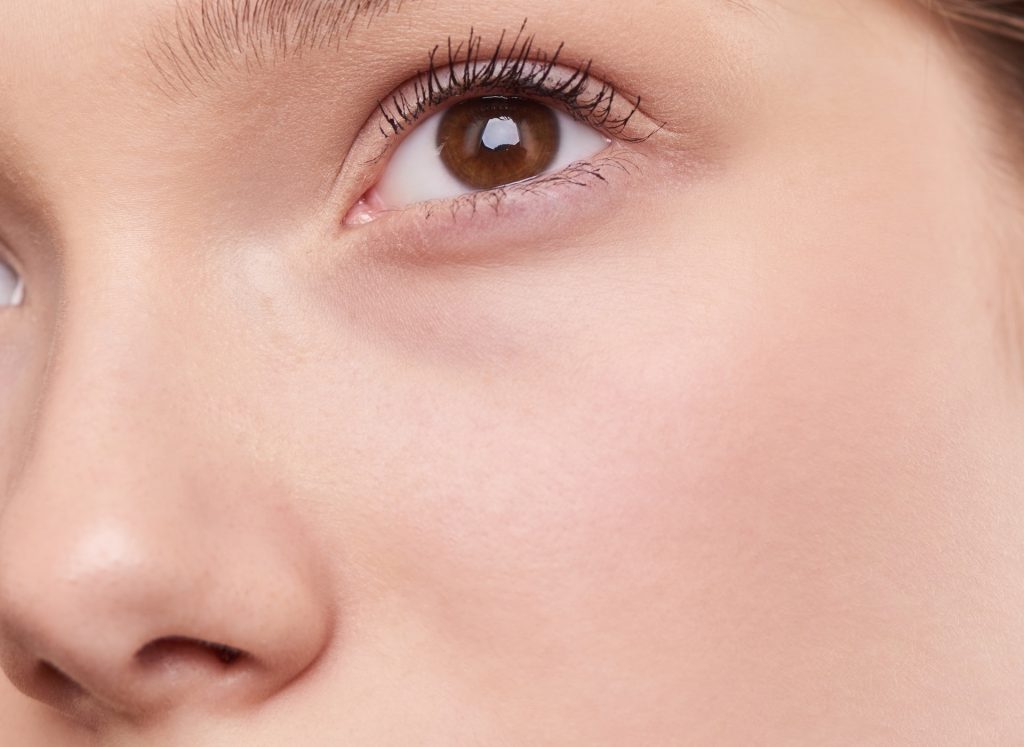Discover the amazing benefits of a low-carb diet for skin conditions.
What Are the Benefits of a Low-Carb Diet for Skin Conditions?
Living with skin conditions can be frustrating and often leads to a never-ending search for solutions. But what if I told you that one potential solution may be as simple as adjusting your diet? It’s true! Low-carb diets have been gaining popularity in recent years, and they have shown promise in helping to alleviate certain skin conditions. So, let’s dive in and explore the wonderful world of low-carb diets and their connection to skin health.
Understanding Low-Carb Diets
Before we can fully appreciate the benefits of a low-carb diet for skin conditions, let’s take a moment to understand what exactly a low-carb diet entails. Essentially, a low-carb diet is all about reducing your intake of carbohydrates, such as bread, pasta, and sugary treats.
But what does it mean to reduce your carbohydrate intake? How does it affect your body and, more specifically, your skin? Let’s delve deeper into the world of low-carb diets to find out.

Defining a Low-Carb Diet
A low-carb diet limits your carbohydrate consumption to a certain extent, with the goal of encouraging your body to rely more on fat for energy. By reducing the amount of carbohydrates you consume, your body enters a state called ketosis, where it starts breaking down fats into ketones to fuel your body.
During ketosis, your body becomes more efficient at burning fat, which can lead to weight loss. But the benefits of a low-carb diet go beyond shedding pounds. It has been suggested that this dietary approach may also have positive effects on various health conditions, including skin conditions.
Key Components of a Low-Carb Diet
A low-carb diet encourages the consumption of foods that are higher in protein and healthy fats. Think of delicious avocados, mouthwatering salmon, and protein-packed eggs. These foods not only provide essential nutrients but also help keep you feeling fuller for longer.
On the other hand, a low-carb diet suggests reducing your intake of starchy fruits, grains, and sugar-laden temptations. These foods are typically high in carbohydrates and can cause spikes in blood sugar levels, leading to inflammation and potential skin issues.
By focusing on protein and healthy fats, a low-carb diet aims to stabilize blood sugar levels and reduce inflammation, which can have a positive impact on your skin’s health and appearance. Additionally, the consumption of nutrient-dense foods rich in vitamins and minerals can support overall skin health.
It’s important to note that while a low-carb diet may have potential benefits for some individuals, it may not be suitable for everyone. It’s always recommended to consult with a healthcare professional or registered dietitian before making any significant changes to your diet.
In conclusion, a low-carb diet involves reducing your carbohydrate intake and increasing your consumption of protein and healthy fats. This dietary approach aims to promote ketosis, where your body burns fat for fuel, potentially leading to weight loss and improved skin health. However, it’s crucial to seek professional advice before embarking on any new diet plan.
The Connection Between Diet and Skin Health
It’s no secret that what you put into your body can have a profound impact on your skin’s appearance and overall health. Through various scientific studies and anecdotal evidence, we’ve discovered how diet can influence skin conditions.
How Diet Influences Skin Conditions
Your diet plays a vital role in the health of your skin. The foods you eat can affect your hormone levels, inflammation levels, and overall skin function. By making dietary changes, you may be able to reduce skin inflammation, balance hormones, and improve your complexion.
One of the ways diet influences skin conditions is through the intake of antioxidants. Antioxidants are substances that help protect your skin from damage caused by free radicals, which are unstable molecules that can harm cells. Foods rich in antioxidants, such as berries, leafy greens, and nuts, can help combat oxidative stress and promote healthier skin.
In addition to antioxidants, omega-3 fatty acids found in fatty fish, flaxseeds, and walnuts can also have a positive impact on your skin. These healthy fats help maintain the skin’s natural oil barrier, keeping it hydrated and reducing the risk of dryness and irritation.
Furthermore, a diet high in fruits and vegetables provides essential vitamins and minerals that are crucial for skin health. Vitamin C, for example, is necessary for collagen production, which helps keep your skin firm and elastic. Foods like oranges, strawberries, and bell peppers are excellent sources of vitamin C.
The Role of Carbohydrates in Skin Health
Carbohydrates, while delicious, can sometimes wreak havoc on your skin. High-glycemic index foods, such as refined grains and sugary snacks, can cause spikes in blood sugar levels. These spikes can lead to inflammation and an increase in sebum production, potentially contributing to acne breakouts.
However, not all carbohydrates are bad for your skin. Complex carbohydrates, like whole grains, legumes, and vegetables, have a lower glycemic index and provide a steady release of energy. They are also rich in fiber, which can help regulate blood sugar levels and promote a healthier complexion.
Moreover, certain carbohydrates contain nutrients that are beneficial for skin health. Sweet potatoes, for example, are packed with beta-carotene, a precursor to vitamin A, which is essential for skin cell turnover and repair. Including a variety of complex carbohydrates in your diet can provide a range of nutrients that support skin health.
It’s important to note that while diet can play a significant role in skin health, it is not the sole factor. Other factors, such as genetics, lifestyle choices, and skincare routines, also contribute to the overall condition of your skin. However, adopting a balanced and nutrient-rich diet can certainly contribute to a healthier complexion.
Low-Carb Diets and Specific Skin Conditions
Now, let’s take a closer look at how low-carb diets can specifically benefit certain skin conditions you may be dealing with.

Low-Carb Diets and Acne
If you’ve been battling acne, you may find relief in a low-carb diet. Acne is a common skin condition that affects millions of people worldwide. It is characterized by the presence of pimples, blackheads, and whiteheads on the face, chest, and back. While the exact causes of acne are still not fully understood, it is believed that high-glycemic index foods can contribute to its development. These foods, such as sugary snacks, white bread, and pasta, can cause a spike in blood sugar levels, leading to increased insulin production. Insulin, in turn, triggers the release of hormones that can stimulate the production of sebum, an oily substance that can clog pores and lead to acne breakouts.
By reducing your intake of high-glycemic index foods, you may be able to quiet down those pesky breakouts. Low-carb diets focus on consuming foods that have a lower glycemic index, such as leafy greens, lean proteins, and healthy fats. These foods provide essential nutrients while minimizing the impact on blood sugar levels. Additionally, the inclusion of healthy fats in your diet can help reduce inflammation, which is often a contributing factor to acne flare-ups. Foods rich in omega-3 fatty acids, such as salmon, walnuts, and flaxseeds, have been shown to have anti-inflammatory properties that can benefit the skin.
Low-Carb Diets and Psoriasis
Psoriasis, a chronic autoimmune condition that affects the skin, can be a frustrating and uncomfortable condition to manage. It is characterized by the rapid buildup of skin cells, resulting in thick, red patches covered with silvery scales. The exact cause of psoriasis is unknown, but it is believed to involve an overactive immune system and genetic factors.
However, some studies have shown that a low-carb diet may help reduce the severity of psoriasis symptoms. By reducing inflammation in your body, you may experience fewer flare-ups and a calmer complexion. Inflammation plays a significant role in the development and progression of psoriasis. Certain foods, such as processed carbohydrates and sugary snacks, can trigger an inflammatory response in the body. By eliminating or reducing these foods in a low-carb diet, you may be able to minimize the inflammatory processes that contribute to psoriasis.
Low-Carb Diets and Eczema
Eczema, also known as atopic dermatitis, is a common skin condition that affects people of all ages. It is characterized by dry, itchy, and inflamed skin. Eczema can be a challenging condition to tackle, as its exact causes are still being studied. However, it is believed to involve a combination of genetic, environmental, and immune system factors.
While the exact relationship between diet and eczema is not fully understood, adopting a low-carb diet may provide relief for some individuals. By reducing potential triggers, such as certain foods and inflammation levels, you may experience a soothing effect on your eczema-prone skin. Some common triggers for eczema flare-ups include dairy products, gluten, and processed foods. These foods can cause inflammation in the body, which can exacerbate eczema symptoms. By following a low-carb diet that focuses on whole, unprocessed foods, you can minimize your exposure to these triggers and potentially improve your eczema symptoms.
The Science Behind Low-Carb Diets and Skin Health
Now, let’s delve into the scientific side of things and discover the mechanisms behind how a low-carb diet can positively impact your skin health.
Nutritional Science: Low-Carb Diets and Skin
Various studies have highlighted the potential benefits of a low-carb diet for your skin. For example, one study found that reducing carbohydrate consumption can lead to a decrease in acne severity. Another study showed that a low-carb diet can improve the skin’s barrier function, which is crucial for managing skin conditions like eczema.
Understanding the Glycemic Index and Skin Health
The glycemic index (GI) measures the impact of carbohydrates on blood sugar levels. Foods with a high GI cause a rapid spike in blood sugar, which can lead to inflammation and skin issues. By opting for low-GI foods, like leafy greens and lean proteins, you can maintain steadier blood sugar levels and potentially see improvements in your skin.
Implementing a Low-Carb Diet for Skin Health
If you’re intrigued by the potential benefits of a low-carb diet for your skin conditions, here are some tips to help you get started.
Tips for Starting a Low-Carb Diet
First and foremost, it’s essential to consult with a healthcare professional or registered dietitian before making any significant changes to your diet. They can provide personalized advice and ensure that your new diet aligns with your specific needs. Additionally, gradually reduce your carbohydrate intake to allow your body to adjust and explore delicious low-carb recipes for added inspiration.
Maintaining a Low-Carb Diet for Long-Term Skin Health
Sticking to a low-carb diet long-term can be challenging, but with the right mindset and a little creativity, you can make it work for your skin health. Remember to focus on variety and include a wide range of nutrient-dense foods in your diet. Don’t be afraid to experiment with new flavors and textures to keep things exciting!
So, the next time you find yourself struggling with a skin condition, consider the potential benefits of a low-carb diet. By reducing your carbohydrate intake and focusing on whole, nutritious foods, you may just discover a whole new level of skin health and confidence. Here’s to happy skin and delicious low-carb meals!







